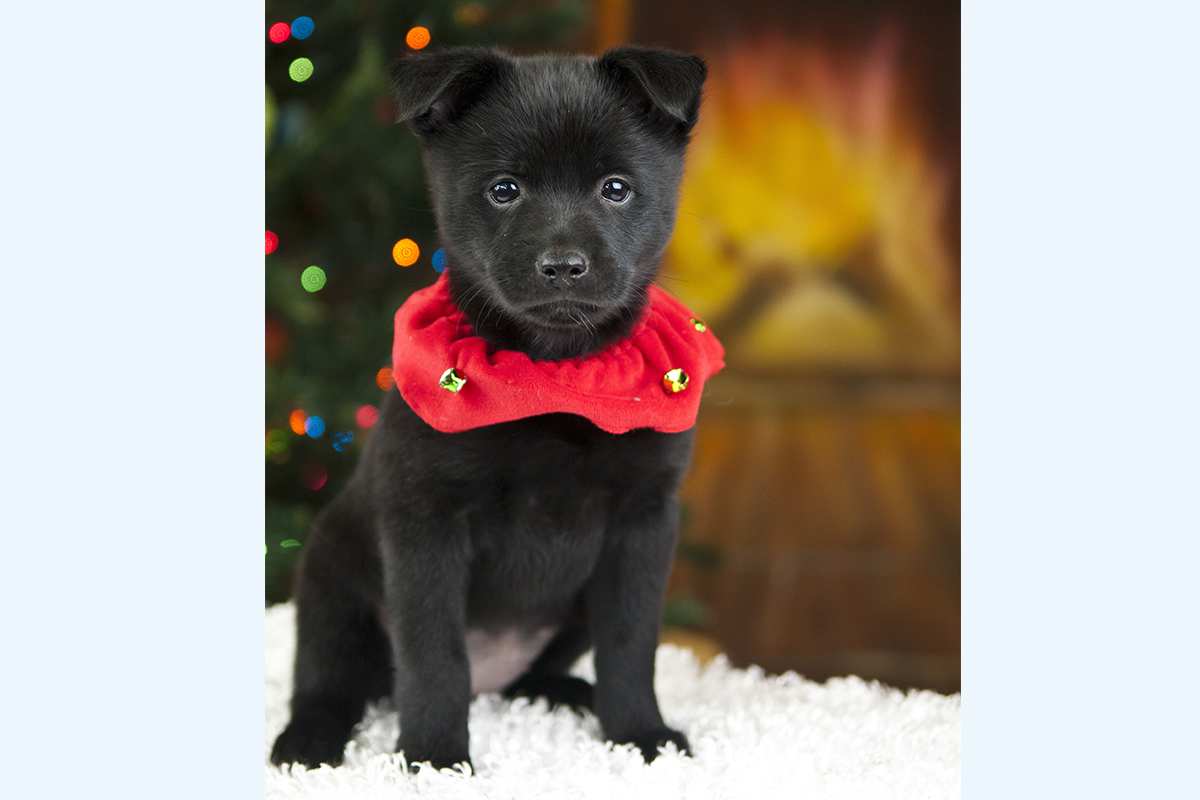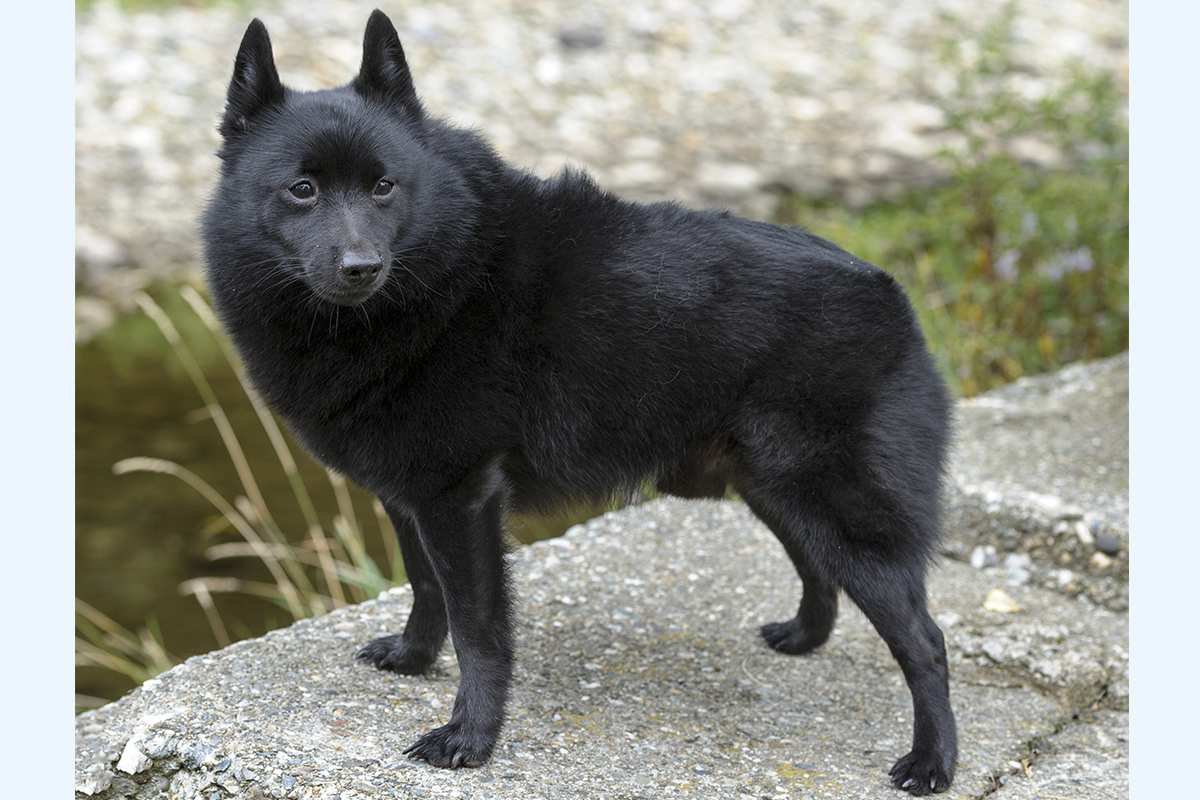Schipperke


 Puppy
Puppy
 Fully Grown
Fully Grown
A Schipperke looks like a minitiature black version of a German Shepherd, and he sure is as brave and alert as one. But these dogs are actually no relation to the German Shepherd breed.
They are sporty, very robust and intelligent little dogs. They are devoted to their families and enjoy having kids to play with. They are more reserved towards strangers and prefer to be left alone.
Schipperkes have quite a bark on them and like to voice their opinion. They will alert you and defend you with pure bravery. They are great watch and guard dogs and their hunting instinct is still very intact. When you let them, they will hunt and bring you mice and other small animals as a way of showing their affection!
Schipperkes like to attach themselves to your hip and are very patient with kids. They need lots of activities where they can release their energy - like daily long walks and dog sports.
You will need to have a good relationship with the neighbours, who will have to not mind having a barker living next door.
The Schipperke’s coat is easy to look after and whenever you have a moment just give it a quick brush.
| Weight: | 5-9 kg |
| Health risk: | Medium |
| Life expectancy: | 13-15 years |
| Coat: | Medium |
| Grooming intensity: | Low |
| Monthly cost (food): | low |
| Trainability: | High |
| Activity level: | Medium |